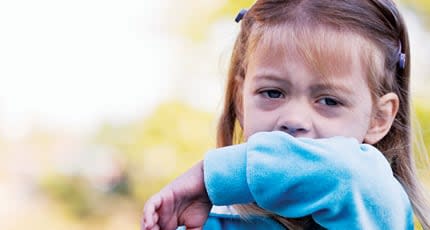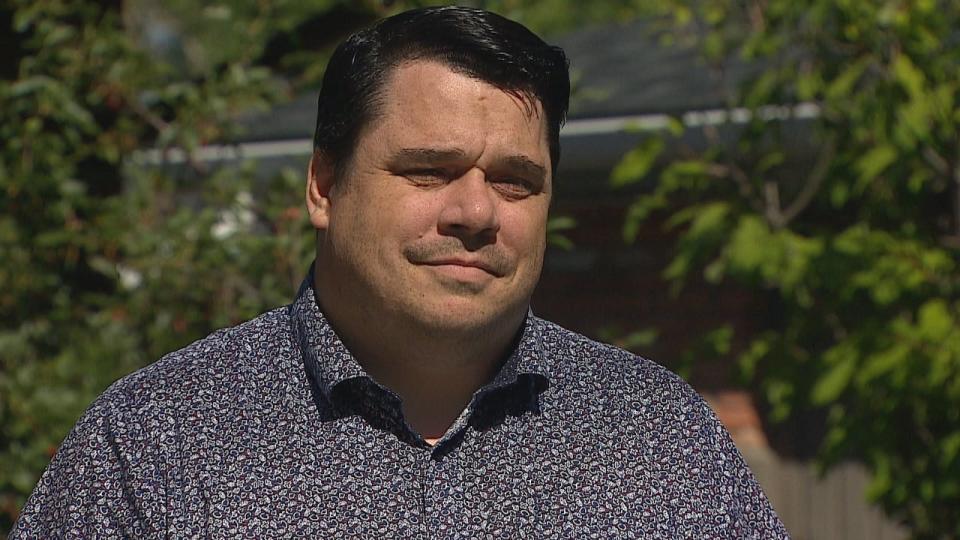Whooping cough cases in Alberta on track for one of the worst years in a decade

A pertussis outbreak that began in southern Alberta in January is showing no sign of ending, and case counts of the disease, commonly known as whooping cough, have skyrocketed provincially.
According to a memo, from medical officers of health to southern Alberta doctors and midwives, 831 cases of pertussis had been confirmed in the province as of early December.
That's dramatically higher than most recent years.
Provincial notifiable disease surveillance reports show 2023's case counts are on track to be some of the highest in a decade.
In the seven years prior to the pandemic, totals ranged from a low of 273 in 2018 to 1,054 in 2017 — another particularly bad year that was also punctuated by an outbreak in southern Alberta.
"Unfortunately, I think this is largely predictable," said Craig Jenne, a professor in the department of microbiology, immunology and infectious diseases at the University of Calgary.
"Because pertussis is so easily transmissible, we really need to see vaccination levels in the mid-90s to slow spread in the community. In many places in Alberta, we are seeing childhood vaccine numbers that are in the 30 and 40 per cent range. [That's] far below what is needed to prevent the spread."
Last year, only 58 per cent of children in the south zone were up to date on their pertussis vaccines by the age of two, with the County of Forty Mile reporting just 22 per cent.
The provincial average that year was 71 per cent.
Southern Alberta, where an outbreak was declared in late January, is a hot spot for whooping cough, with 394 cases of confirmed so far this year, according to the memo from Alberta Health Services (AHS).
Jenne said the big concern is for babies and very young children, who are at highest risk because they're either too young to be vaccinated at all or have not had all of their shots.
The best way to protect them is to ensure people around them are immunized, he said.
"When these little guys get sick, they can get very sick, and some have to get hospitalized. Tragically, we do lose Albertans to whooping cough. And this is something that really wasn't happening 10 years ago," said Jenne.

Craig Jenne is a professor in the department of microbiology, immunology and infectious diseases at the University of Calgary. He says pertussis outbreaks can be tough to rein in. (Colin Hall/CBC)
According to the AHS website, in rare cases, whooping cough can lead to seizures, brain injury and death.
"In Canada, one to four deaths are related to pertussis each year. These deaths are most often in babies who are too young to be immunized or children who are not fully immunized," the website states.
CBC News asked AHS a number of questions, including how many hospitalizations have occurred, whether there have been any deaths and what is being done to address the outbreak.
The health authority did not respond prior to publication time.
The memo noted 71.6 per cent of this year's reported cases were identified in kids under the age of 10, and 88.3 per cent of cases were either not immunized or partially immunized.
Because pertussis is a bacterial infection, it can be treated with antibiotics, and when that's done early, it can reduce the severity of the illness and limit the spread, AHS said in a news release earlier this year.
It also advised people with confirmed cases to stay home until five days of treatment have been completed.
Meanwhile, the outbreak in southern Alberta is ongoing and the most recent cases have been found in Pincher Creek, Cardston County and Lethbridge County.
"Public Health is unable to identify epidemiological links for the majority of these cases, implying that there is more disease that continues to circulate throughout our communities," the memo stated.
According to Jenne, outbreaks like this can be tough to rein in.
"It unfortunately is one of those scenarios where, if there are that many cases in the community, many activities may be subject to risk if you've got small children," he said.
"It's not going to go away. We need to set up these firebreaks and stop the spread through the community. And that's really, in the past, only been achieved by effective vaccine campaigns."


